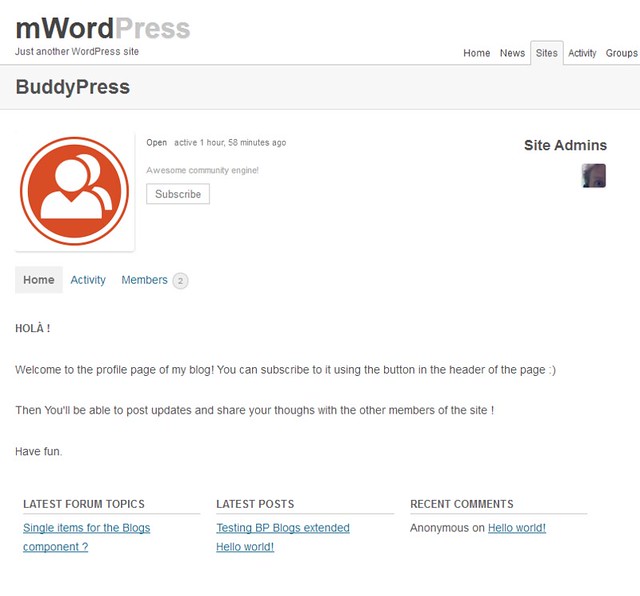Table of Content
First, nursing homes that accept Medicaid pending residents without a guarantor of payment are few and far between. Second, the care quality ratings for these nursing homes tend to be lower. That is not to say all nursing homes that accept Medicaid pending residents provide less than average care, but their ratings on the whole are lower. Third, should an applicant be rejected by Medicaid, the resident will almost certainly be immediately evicted from the nursing home unless the family begins paying out-of-pocket or an appeal is filed.
No matter how a senior arrives at an assisted living community, the admission process remains the same for everyone. Though some requirements may vary slightly at each location and in each state, we will list some of the most common requirements. This approach is similar to #3 and is typically used when #1, #2 and #3 are not available options. “Private pay” or spending out of pocket makes entrance into the nursing home much easier. Some nursing homes will refund what the family has spent on nursing home care when the applicant is approved for Medicaid. Medicaid can be approved retroactively for up to three months prior to the date of nursing home Medicaid application.
Discussing Moving Into a Care Home With Your Loved One
She was better cared for in the NH, and fed better than she was in AL. That vacation that dad took your siblings on, how did he really pay for that? Medicaid requires a 5 year look back on all assets in addition to current monthly income being under a certain limit in order to be eligible for Medicaid. Sometimes the lookback could be 3 years (like for my mom it was 3 years & 6 mos but she was in IL before moving into a NH "Medicaid Pending" so kinda knew where $ went).

There are also organisations that inspect care homes to see how well they are doing. The Care Quality Commission regulates all health and adult social care in England. Nursing homes usually cost more than residential homes as they provide nursing care. Choose a care home that allows visitors at all times or a care home within easy distance of your family home.
Is a Nursing Home is Right for Your Family?
While his daughter may have POA, if he is of sound mind, he still has rights and can make decisions. Respite care options should also be considered, as carer stress is often a significant problem in these situations, Mr Gear noted. “If the person has lost capacity, their Enduring Guardian can make decisions in relation to care, health and accommodation decisions,” she said. A reader recently shared her experience with us on our Facebook page. She cared for her husband at home for 16 years and told HelloCare the last few years were “a nightmare”. She said she felt trapped at home with him all day, had no support, and at times feared for her life.
Unfortunately, the cost of care is often a driving factor about whether it is time for a nursing home. Any decision involving care for an aging adult can be difficult at times. You may be concerned about the cost, the quality of care, and also how to have a conversation with your parent about care. Rooms at a nursing home may be a big adjustment for anyone moving in, as residents are often asked to part ways with a good number of home furnishings and other things they hold close.
How To Avoid Being Forced Into A Nursing Home?
You are not responsible for his mother, only your young child. First consider him/her, then tell your father he needs to produce paperwork to show you he is trying to apply for government assistance. If you do not stand up to him, he will continue to use and abuse your good works. Depending on the state, some nursing homes may require a diagnosis from a licensed medical professional for their specific ailment. These must state that the senior requires enrollment in a nursing home in order to be admitted.

You can write a will to allow you to distribute many “things” but there are still barriers to end of life care. When all other options for housing have been exhausted, social services may force a person into a nursing home. This occurs most frequently when the person is homeless or has no place to live. In this situation, the social services department may force the person into a nursing home, even if they don’t want to go.
Child Custody & Support
Acknowledge the fact that nursing home care is a necessary reality for millions of people, including your parent. Remind yourself frequently that your mom or dad is safer, less isolated, and better cared for. Figure out if the facility provides adequate care to residents in your parent's particular condition. Your mom or dad is becoming more and more socially withdrawn or becoming less and less interested in doing fun activities. Along with the above-mentioned paperwork, you will need to complete any applications your chosen facility requires.

If your loved one is having difficulty bathing or grooming or other personal care issues, a nursing home can provide assistance. The staff can help residents with bathing, dressing, and personal hygiene. If you’ve noticed that your loved one isn’t eating enough or isn’t eating healthy foods, a nursing home can help to ensure that they’re getting the nutrition they need.
This is a good approach for most families as it requires no output of cash nor is the family always required to guarantee payment to the nursing home should their loved one be rejected by Medicaid. However, only a relatively small percentage of families can make the Medicaid Pending approach work. Nursing homes that accept Medicaid pending residents are the exception to this rule. “Medicaid pending” means that an applicant has applied for Medicaid or is in the process of doing so and waiting for a response from their state’s Medicaid office . Many Americans don't have the financial resources to pay for assisted living or nursing home care out of their own pockets.
The thought of all that disappearing along with fundamental changes and new surroundings can cause real panic. Lastly, give your loved one plenty of opportunities to speak – don’t plough into a half-hour rant and deny them the opportunity to ask questions or make comments. The choice to go into care should also be theirs and the discussion may bring up complex emotions or feelings of distress for them. If your relative becomes really upset and refuses to talk, or even walks out, give them some time and try again on a different occasion. When it’s time for your elderly parent, sibling or relative to go into a care home, it can be a difficult time for everyone involved. I used to walk around her nursing home and talk to people that got no visitors after one day I mentioned not wanting to talk to them as I was scared and they thought I was some one else.
Nursing homes usually require that the individual has a certain level of care needs and cannot be safely cared for in their own home. Step 1 – Create a list of nursing homes in your area that accept Medicaid. If social services determine that your care needs are not being met in your own home, they can move you to an environment that will ensure that they are. If someone has just had a surgical procedure or a hospital stay, their doctor may discharge them on the condition that they spend some time in a care home to receive respite care . Typically, the person in question will have a mental capacity or medical assessment to determine whether they are mentally capable of making decisions. You should be given a care plan by the council, which lets you know your options.

No comments:
Post a Comment